By Dr Stephen James Minton
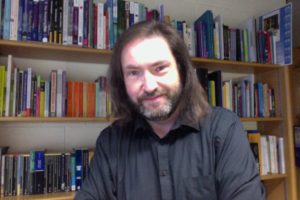
‘Our generation is realistic, for we have come to know man as he really is. After all, man is that being who invented the gas chambers of Auschwitz; however, he is also that being who entered those gas chambers upright, with the Lord’s prayer or the Shema Yisrael on his lips’ (Frankl, 1959, p. 157).
Like many people, I have always had a curiosity about what it is that underlies choices in extreme circumstances; and like many psychologists, I have always had a desire to find out what is it that can or could help human beings to survive. In Marginalisation and Aggression from Bullying to Genocide: Critical Educational and Psychological Perspectives, I have attempted to bring whatever learning I have accrued from my professional experiences (in the fields of psychology and education) to bear on shedding some light on how and why human beings create unliveable situations for their fellow human beings. An informing idea that runs through the book is the position held by various phenomenologist philosophers (beginning with Sartre and de Beauvoir), and those influenced by them, that human beings inevitably define and perceive themselves (and people ‘like them’) as the One, and simultaneously set up those who are somehow not like them, as an oppositional Other. I argue that this results in an observable ‘continuum of marginalisation’ experiences. Essentially, this is based on the findings that similar sets of individual, group and societal mentalities and actions (all of which relate to the targeted persecution and destruction of ‘Otherness’) exist. These underlie and stretch across a continuum of phenomena that span prejudice, stereotyping, discrimination, harassment, bullying and street violence, through to acts of colonisation, forced assimilation, legally sanctioned subjugation, war, and at its most extreme, genocide.
At one end of the continuum, school bullying is a form of aggressive behaviour which generally stems from marginalisation and prejudice. Given its frequency, most people will have had at least second-hand experience of it. Evidence also shows that members of so-called ‘minority’ groups (e.g., ethnic minorities, LGBT people, those with intellectual disabilities and special educational needs) continue to experience both school bullying and other forms of aggressive and discriminatory behaviour (Minton, 2014; Zych, Ortega-Ruiz & Del Rey, 2015). Hence, I see school bullying not so much as a phenomenon in itself, but as one of a number of possible manifestations of broader historical and contemporary patterns of marginalisation in society. Anti-bullying actions to date have generally had rather modest effects. My view is that an explicit focus on prejudice (hitherto, a relatively unattended to factor) should be considered in the redesign of such efforts in order to improve their efficacy.
At the other extreme is genocide. In this book, I have outlined an eight-stage model of physical genocide, which is applied to an exemplar which has received little attention: the genocide committed against the indigenous peoples of North America, and in particular, the Lakota-Cheyenne Campaign (1864 – 1890) of the so-called ‘Indian Wars’ of late nineteenth century United States. My position is that even with the acknowledged limited psychological knowledge that we have, we can, at least, learn to look out for the warning signs of genocidal mentality that are reflected in our discourse around ‘Others’. However, in order to understand why genocidal behaviour is actualised, we must be aware of the systemic and power factors that permit it. It is instructive, I believe, to consider how so-called ‘cultural’ forms of genocide have been perpetrated through the apparently ‘benign’ process of education. Such processes have been repeated all over the world in the models of residential schooling that were set up to ‘civilise’ indigenous peoples. The deliberate, legally sanctioned and forcible separation of indigenous children from their families and native cultures, coupled with the often abusive nature of the ‘education’ that such children received, and the conditions that they endured (although too many did not survive), means that this experience of ‘education’ has continued to cast a long shadow. If restitution, reconciliation and reclamation are to be attained – none of which are possible without arriving at truths – then we must engage with and address these issues of legacy. With their historical predecessors having been part of the problem, it remains to be seen if today’s educators can be part of potential solutions.
If we – as professionals, perhaps, but above all, as human beings – really do wish to do things differently in future, we must, as Frankl (above) stated that we are, be realistic. Our tendency to understand ourselves in oppositional relationships to those we deem as ‘Others’ , and our deeply embedded drives toward aggression, must be acknowledged. However, in my view, some aspects of our dominant, non-critical, approaches to psychology and education, obscure rather than assist us in doing things differently. I feel that if we are to genuinely learn from the horrors of the past and present, we must make a genuine attempt to re-capture genuine person-centredness, in the radical form in which it was originally conceived, in our thinking and our practice. My hope is that, within whatever constraints that we may have, we can become more genuinely active in actualising our possibilities for reaffirming humanity in our individual and collective choices.
REFERENCES
Minton, S.J. (2014). Prejudice and effective anti-bullying intervention: evidence from the bullying of ‘minorities’. Nordic Psychology, 66(2): 108-120. doi:10.1080/19012276.2014.928485
Zych, I.; Ortega-Ruiz, R. & Del Rey, R. (2015). Scientific research on bullying and cyberbullying: Where have we been and where are we going. Aggression and Violent Behaviour, 24: 188-198. https://doi.org/10.1016/j.avb.2015.05.015
Dr Stephen James Minton CPsychol AFBPsS is a chartered psychologist and a lecturer in the psychology of education at the School of Education, Trinity College Dublin. He is author of Marginalisation and Aggression from Bullying to Genocide: Critical Educational and Psychological Perspectives (Sense, 2016) and Using Psychology in the Classroom (Sage, 2012), and the co-author of Dealing with Bullying in Schools: A Training Manual for Teachers, Parents and Other Professionals (Sage, 2004) and Cyber-Bullying: The Irish Experience (Nova Science, 2011). His research and practice interests include processes of inclusion, exclusion and marginalisation in education and society (especially regarding so-called ‘minorities’, e.g. indigenous peoples, LGBT people, and members of alternative youth sub-cultures), and aggression and violence (including bullying and cyber-bullying).



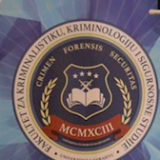
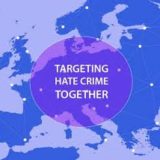
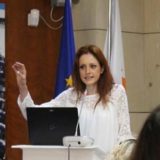
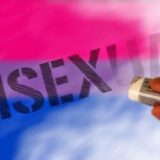
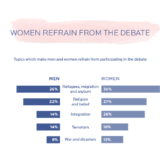
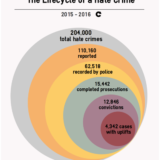
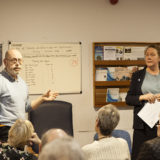

Recent Comments